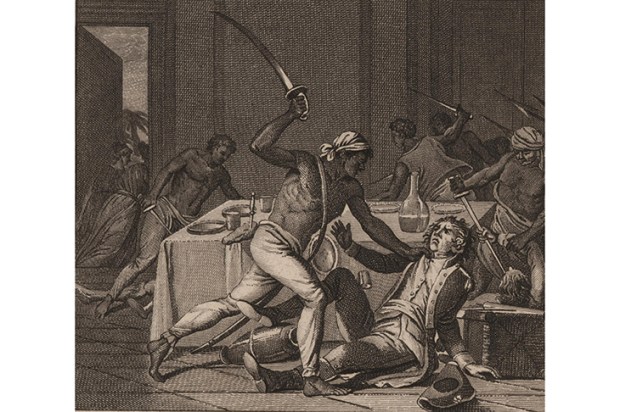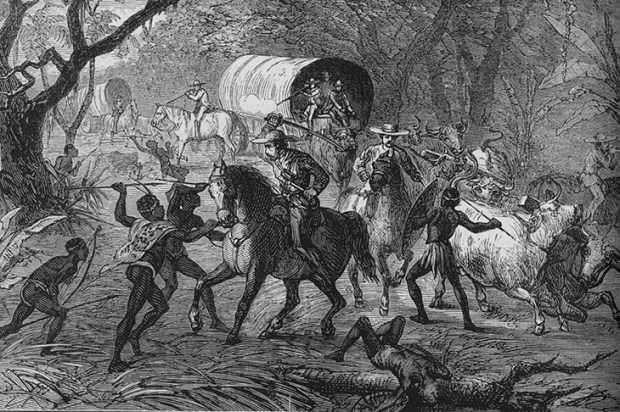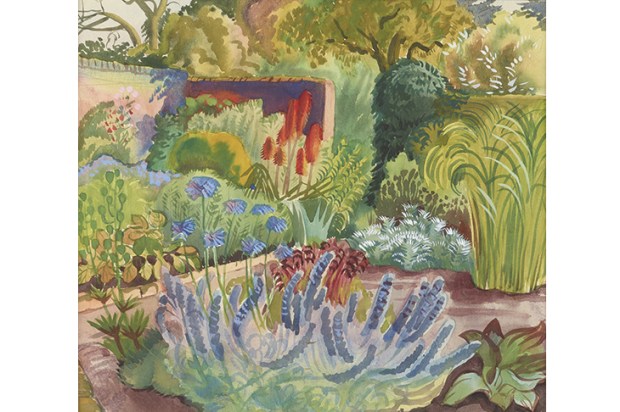In Nicole Flattery’s Show Them a Good Time (Bloomsbury, £14.99), her female protagonists grapple with abusive relationships, degree courses, difficult bosses, unemployment programmes and a lascivious professor. The stories are tragicomic and deliciously odd. The author writes sentences that make you laugh, and then immediately want to reread to savour a striking image: a woman’s boss ‘had a way of looking me up and down like I was a CV full of errors and misspellings’. They somersault from the everyday to the absurd, in a way that reflects the disorientation of the characters, leaving one feeling both sympathetic and alienated.
Flattery captures the pressures on women to be ingratiating, and the friction that creates between how they might feel and how society expects them to behave. A teacher on a date reassures her male companion ‘I can be likeable if you get to know me’, while ‘silently wondering if this was true’. In ‘Parrot’, an art student drops out of university and hopes she can still be ‘complicated and interesting without a degree’; but instead she finds herself mothering the men she dates, and muses: ‘Why wouldn’t they let her commit the delinquency she knew she was capable of? Why was she always standing next to the delinquents, apologetically shaking her head?’ A subsequent affair leads to inner turmoil, yet she finds herself smiling amiably in public, ‘like a tourist, like a secretary’.
At times the sardonic, detached narrators left me feeling too far removed from their predicaments. But in a recent interview Flattery explained that they suffer the modern malaise of dissociation: ‘I think a certain element of trauma pushes you outside yourself and forces you to watch yourself.’ She has been hailed as one of Ireland’s rising literary stars; like Sally Rooney, she is adept at capturing millennial culture, but her voice is more distinctive in its daring, eccentric intelligence. This is a collection which lives up to its hype.
Leanne Shapton has previously demonstrated her skill in marrying prose and artwork in her memoir Swimming Studies. By comparison, Guestbook (Particular Books, £22) is a little disappointing. Billed as a ‘curiosity cabinet’ of ghost stories, it comprises 33 tales interwoven with photos, illustrations and prose vignettes that range from pictures of haunted houses to architectural plans to social media satire.
The result is more hipster than haunting. Shapton’s own delicate paintings can appear to good effect; in ‘Chrysanthemum, Carnation, Anemone, Foxglove’, there are images of flowers reversing from clearly defined to latent, their fading petals becoming ghostly on the page. But a washed-out watercolour of a boy on a misty shore is insipid, despite being inspired by stills from Death in Venice. Another story, ‘Who is This Who is Coming?’, is a sequence of photos depicting a moving spectre — which might have been chilling had it not looked like someone hiding under a tablecloth.
The reference to M.R. James highlights what is lacking — paradoxically, good ghost stories need some flesh and blood to truly disturb. These are often too slight, concise but lacking concentrate, tepid when they should chill. One gem, however, is the tale of a tennis genius called Billy Byron, his shots guided by an imaginary childhood friend, his victories leading to mysterious collapses on the court. It is so good it made me long for more in that vein — tales with real substance and eeriness. Given Shapton’s considerable talents, Guestbook is an unsatisfying collection.
Ruby Cowling also plays with the visuals of text and typography in This Paradise (Boiler House Press, £12.99). In ‘The Ground is Considerably Distorted’, Yukako, a Japanese news reporter, is sent to the UK to cover a scandal involving a politician’s wife. The main text is a poignant exploration of her private anxieties, from a lost suitcase to her ailing mother, which runs alongside a column of her gossipy reporting and tweets. It is a superb rendering of the gap between everyday life and social media persona. Added to this are fraught discussions, conveyed in texts and conversation, between the politician and his partner, creating a rich mosaic of satire.
The range of Cowling’s style and subject matter is impressive; that this collection is hard to classify is part of its appeal. One story is narrated by twins, their voices streaming in two columns on the page before they finally merge; another is composed of futuristic letters exchanged by correspondents inhabiting pods. ‘On Day 21’ features a busy woman able to press the ‘off’ switch on her children when they become too demanding. On a trip to a supermarket, she finds the switch no longer seems to work, perhaps due to overuse. In her subsequent panic, she wonders if it ever existed at all, so that we’re left uncertain whether we’re reading a sci-fi satire or the account of a mental breakdown.
Cowling has a striking ability to wrongfoot the reader; her stories appear to head in one direction, then swerve dramatically. The result is unnerving and compelling. While she can be clever and tricksy, she is also humane and compassionate. This Paradise is a beautiful and highly original collection.
Got something to add? Join the discussion and comment below.
Get 10 issues for just $10
Subscribe to The Spectator Australia today for the next 10 magazine issues, plus full online access, for just $10.
You might disagree with half of it, but you’ll enjoy reading all of it. Try your first month for free, then just $2 a week for the remainder of your first year.














Comments
Don't miss out
Join the conversation with other Spectator Australia readers. Subscribe to leave a comment.
SUBSCRIBEAlready a subscriber? Log in